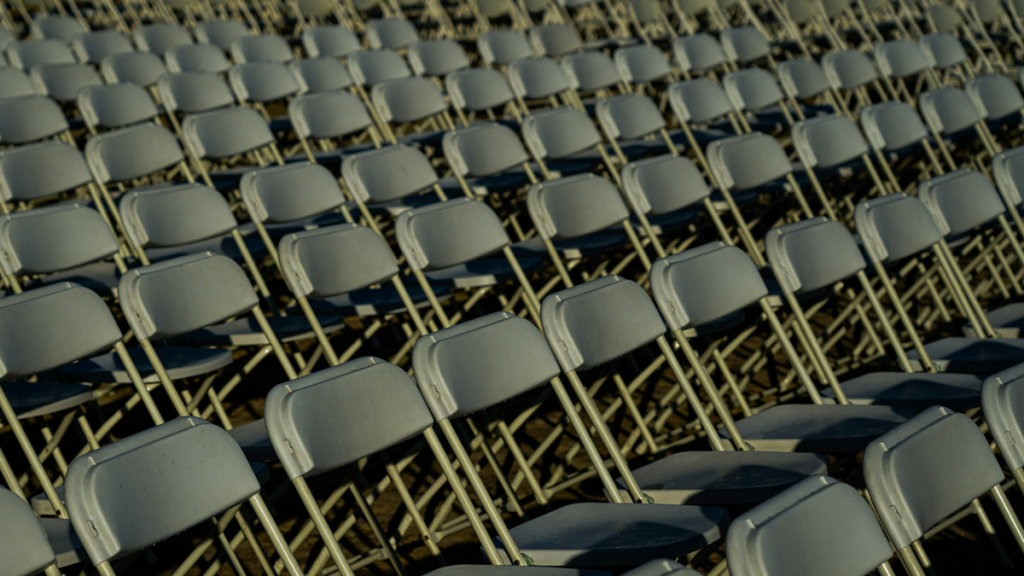Photo Credit: Nick Fewings
One add-on too many? Live Nation bans personal lawn chairs at their venues, then charges $15 for their own folding chair.
When Live Nation banned personal folding chairs from their events at Saratoga Performing Arts Center (SPAC), fans were outraged at the new rule. Then Live Nation started selling their own folding chairs for $15, sparking even more ire from concertgoers. And it’s not just SPAC — 31 of the 37 amphitheaters listed on Live Nation’s website ban or will ban outside chairs.
Interestingly, the six remaining venues that allow concertgoers to bring their own chairs specify seat bottoms must be no higher than nine inches off the ground. The chair ban has been explained as a security measure and a means to speed up concert entry, but concertgoers aren’t buying it.
“Live Nation concerts charge for parking, overpriced ticket, up the prices on drinks, and now we can’t bring in a lawn chair but can rent one for $15!” despaired one Facebook user. “Want us to pay for using bathrooms too?”
A statement provided by SPAC stressed that “this is a Live Nation specific policy that does not apply to SPAC produced shows,” which includes Saratoga Jazz Festival and performances by New York City Ballet and The Philadelphia Orchestra. “SPAC will continue to invite our guests to bring in personal lawn chairs, blankets, and food and beverages to our performances,” they said.
Some enraged concertgoers are calling for a boycott of Live Nation-specific SPAC events, and some are calling for a boycott of SPAC altogether — especially since the venue adopted Live Nation’s dynamic pricing model for its own non-Live Nation events.
Live Nation is still sweating out an antitrust lawsuit filed against it and its subsidiary Ticketmaster by the United States Department of Justice. The lawsuit accuses the two companies of creating an illegal monopoly that prevents smaller promoters from competing and drives up ticket prices for consumers. In August, the lawsuit was updated to seek damages for those affected.

